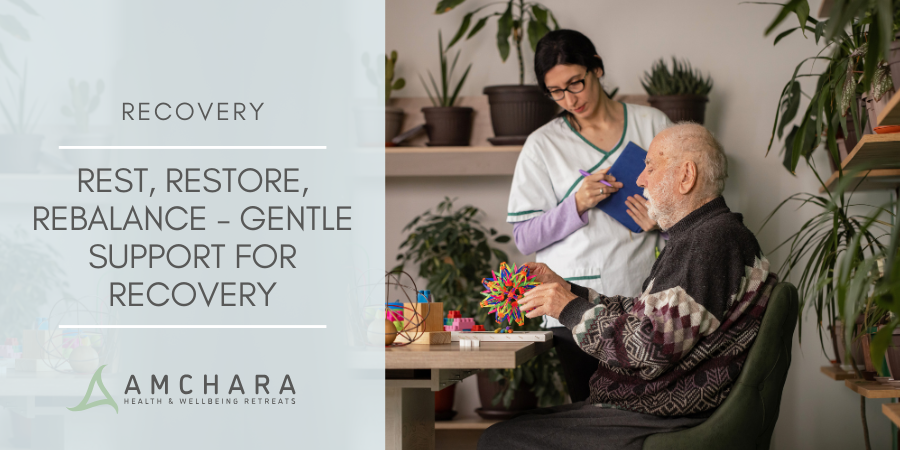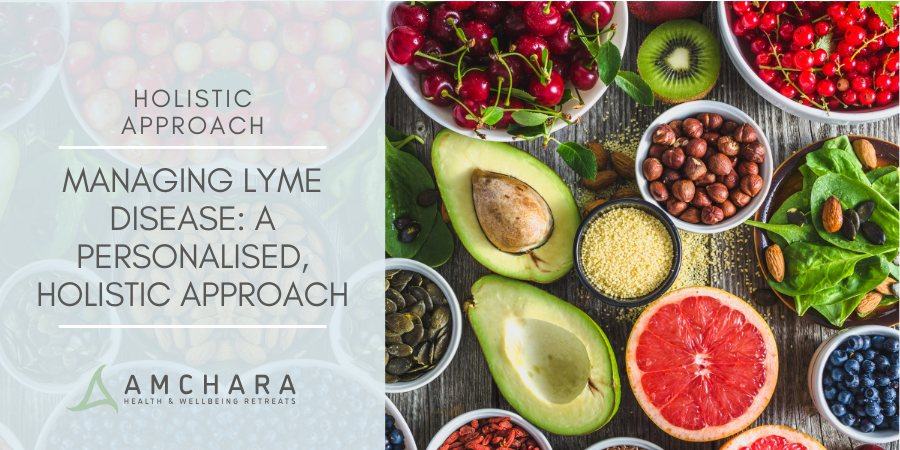Your immune system is the first line of defence against infection and disease, and the way you choose to live can impact its strength.
A strong immune system is a fundamental pillar of good health, helping to reduce severity of symptoms from disease and chronic health conditions, and how strong your immune system is will directly affect your recovery.
Poor lifestyle choices can have a detrimental effect on your immunity, leaving you more vulnerable to infection and development of health conditions. But remember that the body has an innate ability to heal, and making better lifestyle changes can have an immediate and beneficial effect.
Our articles are always evidence-based, and orientated towards a holistic and Personalised Health approach; we aim to provide you with actionable knowledge and tips to help you on your journey to optimal health.
In this article, we will take a closer look at what you can do to support your immune system and boost your overall health.
Think about adopting the following 10 well-researched and evidence-based healthy lifestyle choices to positively impact your immunity:
1. Stay Hydrated
Regularly drinking enough water is very important. Water plays a vital role in carrying oxygen to your cells, impacting all aspects of your body’s functioning, including the lymphatic system, which works closely with the immune system.
Your immune cells effectively ‘swim’ in water to get to where they need to be, so if you are dehydrated they can’t move as quickly to get to a site of infection and protect you from invaders. Water also helps the transportation of toxins from your body; when you are dehydrated, the natural processes of removing toxins is slowed, which in turn leads to increased vulnerability from infections.
One study on the effects of dehydration on immune function suggested that dehydration resulted in immunosuppression, including decreased neutrophil function – neutrophils are an essential part of the innate immune system, a type of white blood cell protecting from infections. Excessive coffee and tea should be avoided. Limit your caffeine intake – caffeine has a diuretic effect, meaning it can negatively affect how hydrated you are. Don’t rely on caffeinated drinks for hydration.
2. Stop Smoking
It is well known that smoking contributes to the development of a range of chronic health issues including cancer, respiratory and cardiovascular problems.
It also contributes to a depletion of protective antioxidants, such as Vitamin C, in the blood, reducing your body’s defences against infection and other invaders. Research has shown that smoking can cause imbalance in the immune system, which in turn can lead to increased risk of immune disorders. Containing over 70 known cancer-causing chemicals, and causing harm to practically every organ in your body, giving up smoking is one of the most important things you can do to improve your health.
3. Cut Down Alcohol
Alcohol interferes with the absorption of nutrients, meaning that even with a healthy diet, your body won’t be able to benefit fully from the vitamins and nutrients you are consuming. Alcohol has many diverse effects on different body functions, including dampening down the immune response – this can lead to an increased risk of falling prey to infection.
Consuming alcohol can cause gut inflammation and damage to beneficial healthy gut bacteria – with about 70% of your immune function residing in your gut, it is evident that this is detrimental to your immune health and ability to defend against infection. As the body’s response to alcohol is to deal with it immediately by sending it to the liver to be processed, your body is distracted from carrying out other vital functions, which can negatively impact your overall health.
4. Exercise Frequently
Being regularly physically active has an immune system enhancing effect. Avoid excessive exercise, but remember that even moderate activities such as housework and going for a walk have a positive effect on your immune system, and your mental health.
Exercise helps to increase blood flow and can reduce stress and systemic inflammation. Studies indicate that physical exercise can significantly alter the immune system – it is important to note that factors such as regularity, duration and intensity impact the modulation of the immune response in relation to exercise.
5. Manage Stress Levels
Too much stress is known to have many negative physical effects. Studies have shown that chronic, prolonged stressors can have negative effects on almost all functional measures of the immune system.
The immune system’s ability to fight antigens is reduced under severe stress, making the body more vulnerable to infections. An increased heart rate is a common factor under stress, and can place strain on the circulatory system and contribute to hypertension (high blood pressure), which is a risk factor for heart disease. Too much stress can also lead to unhealthy coping strategies, such as excessive drinking and smoking.
Research has indicated that therapeutic self-care activities can relieve gut disorders; yoga, meditation, exercise and lifestyle counselling can be useful as part of your toolkit to learn how to better manage and respond to stress, and take care of yourself.
6. Get Quality Sleep
On average, at least seven hours decent sleep every night can help to reduce inflammation and positively increase your immunity. To help you get to sleep, limit blue light emitting devices in the 90 minutes before bed, as blue light suppresses melatonin, a hormone that influences circadian rhythms – sometimes called the body’s sleep hormone. Sleep in a cool, quiet, dark room, don’t keep mobiles and other devices in your bedroom, and avoid alcohol, sugar or caffeine in the hours before bed.
7. Eat Whole Foods
Both the food you eat and products your body is exposed to can contain toxins which can weaken and harm your immune system – a high toxic load can cause chronic inflammation. Include a variety of fresh fruit and vegetables every day, and aim to eat a ‘rainbow’ of different colours for maximum variety in terms of nutrients and polyphenols, which are full of beneficial antioxidants.
Choose organic where possible – organic foods often contain higher amounts of antioxidants and other nutrients, as well as being free from pesticides. Opt for whole grains, legumes, nuts and seeds, oils such as olive and coconut, and good quality meat, poultry, fish and eggs.
Try to minimise your sugar and white starch intake, and remember that processed food contains preservatives and additives, to prolong shelf life and enhance flavouring, and is of less nutritional value than unprocessed food. Look for gentle, natural cosmetics and toiletries, and household cleaning products.
8. Eat These Immune Boosting Foods
Include garlic, ginseng, Reishi mushroom and echinacea to help your immune system to fight off infection. Containing the compound allicin, which is thought to make garlic antibacterial, garlic is also anti fungal, antimicrobial, as well as antiviral and antiprotozoal (able to fight parasites).
Ginseng is a known immune modulator and can help maintain immune system balance and may also help to boost immunity, as well as regulate blood sugar and improve focus. Studies have shown that consuming Reishi mushroom can impact white blood cells and help boost the immune system.
Echinacea has properties that can reduce inflammation, as well as exerting antioxidant and antiviral effects, so is beneficial for overall health and in supporting your immune system.
9. Intermittent fasting
This form of fasting has been linked with many health benefits, including weight loss, and a reduction in risk of health conditions such as Type 2 diabetes and cardiovascular disease. Giving your body a break from digesting enables it to focus on other vital functions, such as your body’s ‘housekeeping’, in which your immune system plays an important role – effectively hoovering out damaged tissues and malignant growth in cells.
In a study with a group of prediabetic obese men carrying out ‘early-time restricted feeding’, all meals were consumed between 7am and 3pm resulting in, after five weeks, lower blood pressure, lower insulin levels and improved insulin sensitivity, all positive signals for a reduced risk of developing Type 2 diabetes. They also experienced decreased appetite.
10. Juicing
Or juice fasting, is when you extract the juice from fresh fruit and vegetables, removing the fibre. As the bulk of the minerals, vitamins and phytonutrients are found in the juice, juicing provides your body with a powerhouse of concentrated nutrients that are quickly absorbed into the bloodstream as your body doesn’t have to work so hard to digest and process the fibre.
A recognised way of detoxing and cleansing your body, juicing can bring many health benefits including restoring a healthy gut balance, promoting a stronger immune system, and overall healing. One study of 20 healthy adults showed that three days of consuming only vegetable and fruit juices resulted in reported overall higher wellbeing scores. Try adding immune boosting foods to your juices such as lemon, ginger, greens and turmeric.
Come to Amchara for a relaxing detox health retreat in the tranquil surroundings of the English countryside, in Somerset.
With expert advice on hand from our experienced practitioners, you can benefit from personalised health advice, tailored to your needs and goals to help you maximise your health gains.
Juicing and fasting may be recommended, according to your personal situation and unique health needs.
You will be immersed in a supportive and nurturing environment that enables you to switch off, relax and kickstart your health journey, including physical activities and empowering, educational talks.
Or why not try Amchara Juicery – cold-pressed, nutritious juices delivered to your door to help you boost your health, naturally.
Created by Amchara’s expert in-house health team, you can enjoy a range of fresh, organic juice cleanses (and super soups) at home.
Read this next:




